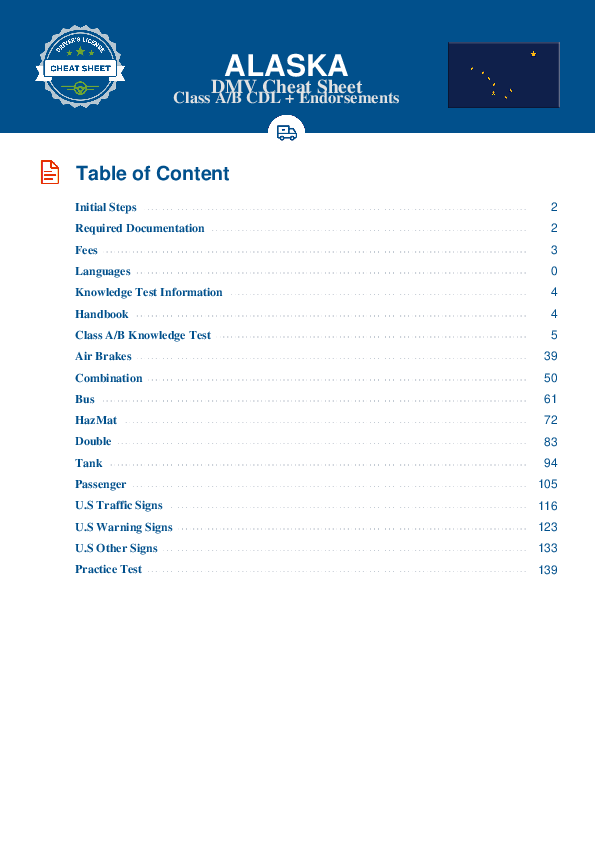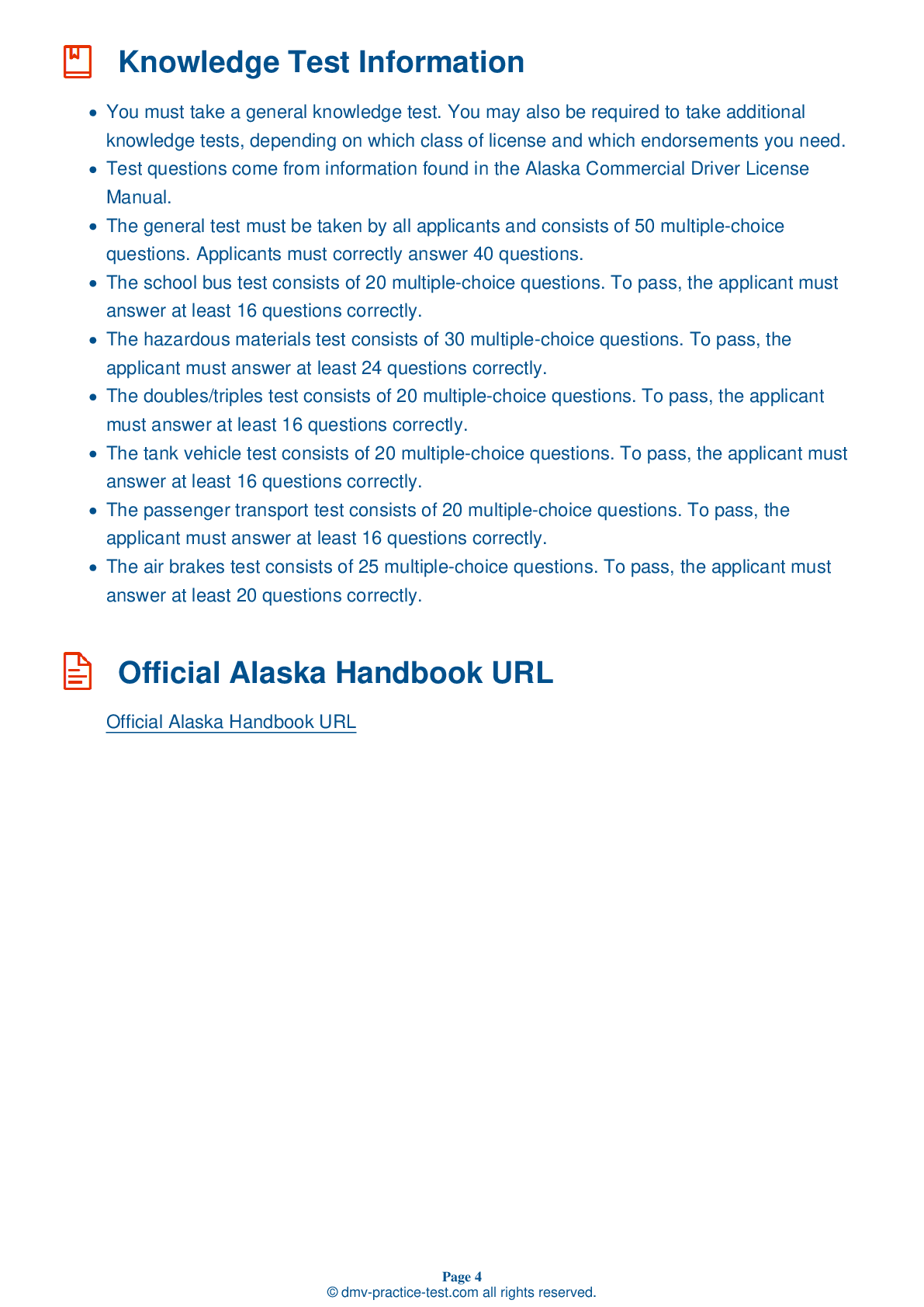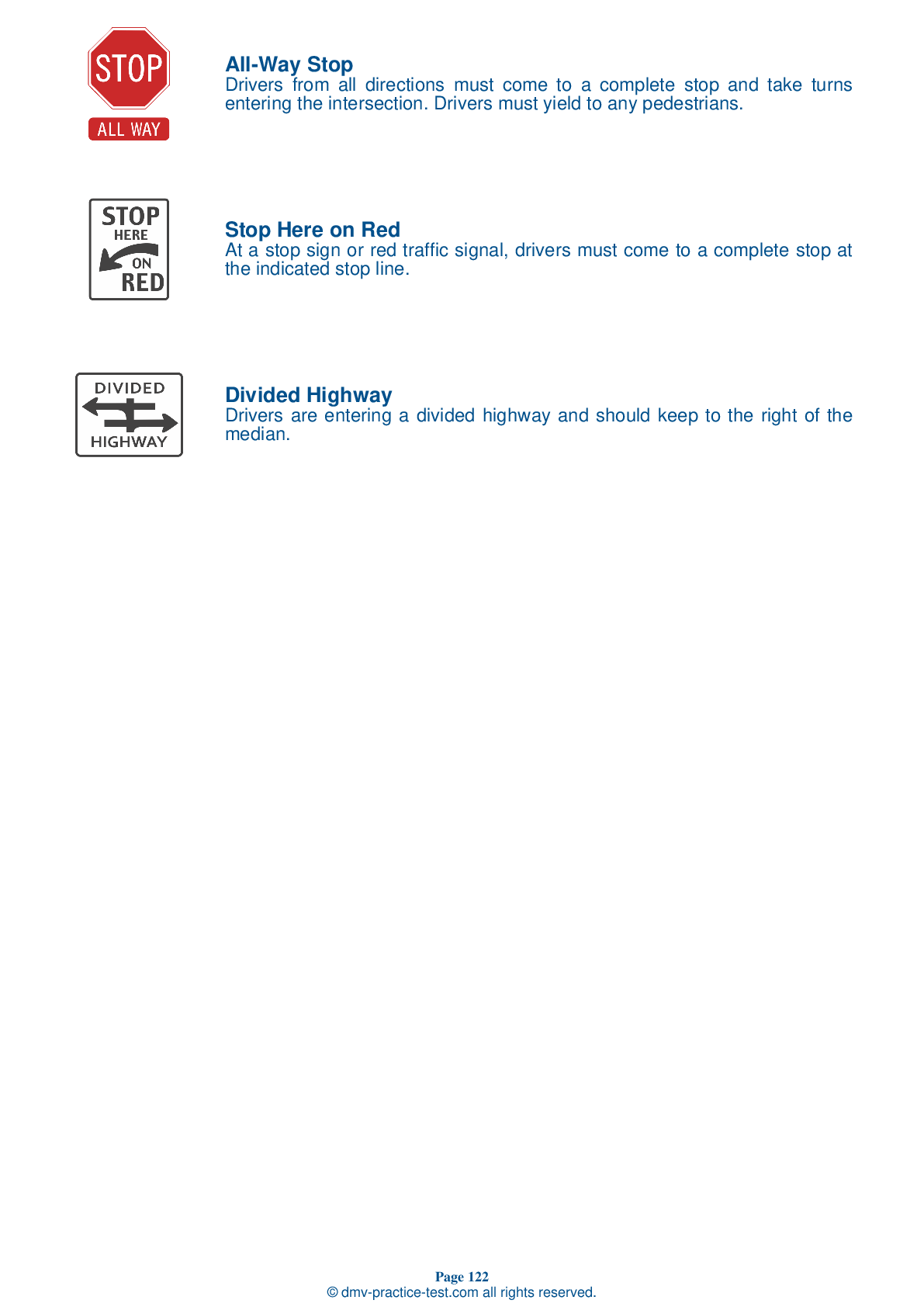Air Brakes #1
Air Brakes Endorsement Test | Alaska 2026 #1
Train for FREE online with our Alaska CDL air brake test. The official exam test consists of several obligatory parts, with all of them checking your knowledge of different blocks of road rules. If you need to obtain a AK Class A/Class B driver license in 2026, practice as much as possible. Free sample tests published on our website will help you check and improve your knowledge and boost your grades. Please bear in mind that the requirements for CDL may vary from state to state.
25
20
20



